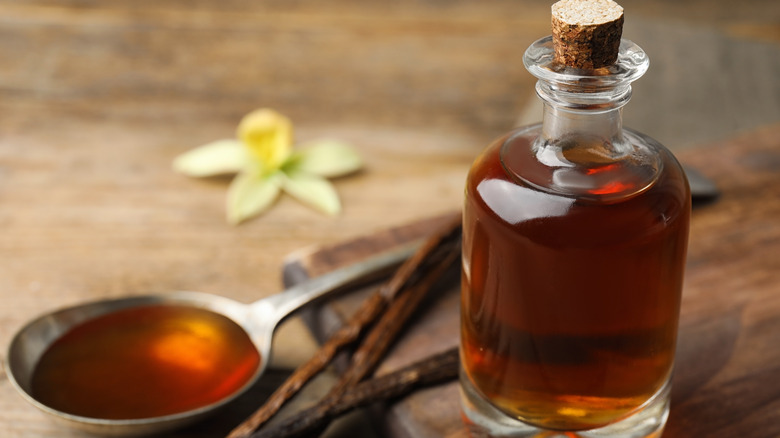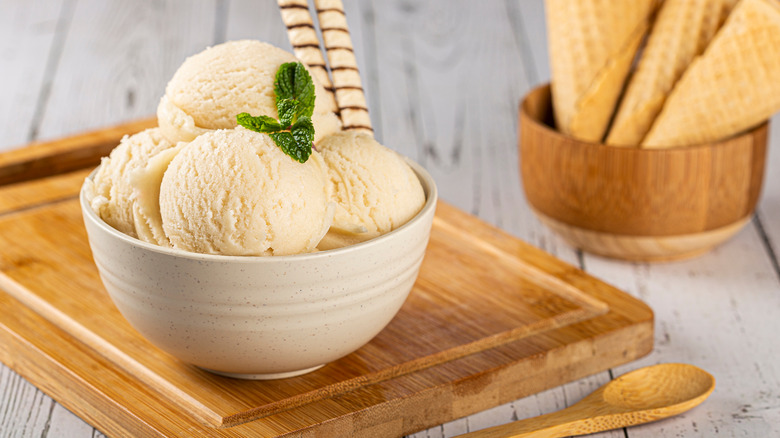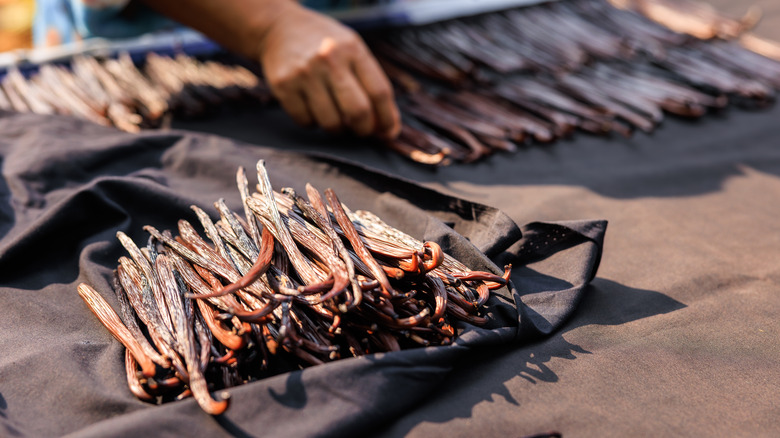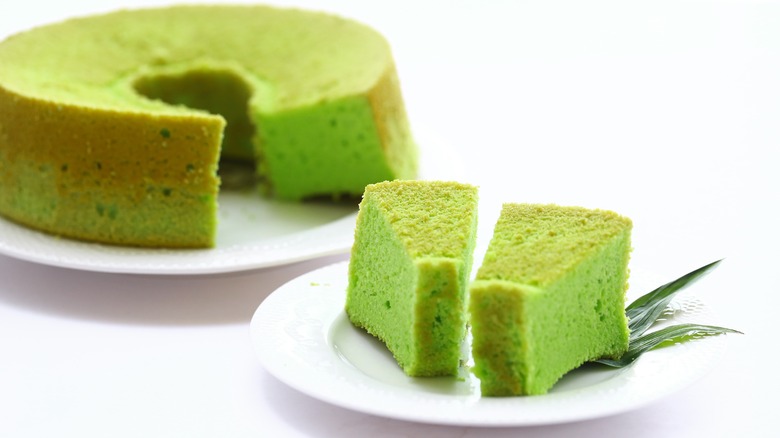Put Down The Vanilla Extract – Your Baked Goods Deserve Better
As early as the 1800s, vanilla extract has been ubiquitous in Western baking, thanks to its frequent mention in cookbooks. Historically, the French have valued vanilla in their cuisine, and the food world followed in France's footsteps. Once vanilla extract became easily accessible, its popularity and demand skyrocketed. When Tasting Table ranked 32 ice cream flavors from worst to best, vanilla took the number one spot. This is not surprising as vanilla is the world's favorite ice cream flavor, according to a report by the Canadian Broadcasting Corporation.
When I started baking in 2017, I believed my baked goodies needed a splash of vanilla extract to taste good. After all, vanilla extract is a universal flavor enhancer and balancer when it comes to baking, right? Not so, as I have come to. discover. And in 2023, I stopped adding splashes of vanilla extract to my cookie dough and cake batter. In fact, I've stopped baking with vanilla extract cold turkey. And I'll tell you why.
Firstly, real vanilla extract is expensive. According to gourmet baking brand Rodelle, vanilla is "the most labor-intensive crop in the world." Vanilla production also negatively impacts the environment, causing deforestation and loss of biodiversity, especially in Madagascar, where you'll find 80% of the world's vanilla beans. If that wasn't enough, vanilla extract has a dark history deeply entangled with child slavery. And to top it all off, it isn't even as effective as people think, and there are many better alternatives that will add more complex flavors to your bakes.
Vanilla extract is really only worth the steep costs for cold desserts
Vanilla extract can cost anywhere from about $3 to $5 per fluid ounce. As a home baker and recipe developer, it has become difficult to justify spending at least $20 for a small bottle of real vanilla extract. Plus, even when you add a generous splash of vanilla extract to your cookie dough or cake batter, it does not make a noticeable difference after going into a hot oven. Why? The ethanol in vanilla extract evaporates by the time your oven hits 300 degrees Fahrenheit.
It's time we move beyond vanilla extract when we bake — it's just not worth it. However, I want to clarify one thing: I'm not saying that vanilla extract does nothing for desserts. Let's say you're making vanilla ice cream, buttercream, frosting, a milkshake, or a no-bake cheesecake — in colder desserts and treats that don't require higher heating levels, vanilla extract is an effective flavor enhancer and balancer. For die-hard vanilla fans, consider using imitation vanilla extract rather than the real deal in baking. It usually costs less than a dollar per fluid ounce and has less alcohol content, making the synthetic vanilla notes less likely to evaporate and fade in the oven.
The vanilla industry has a dark history, and modern day vanilla farming is controversial
With its sweet aroma and hefty price tag, vanilla extract has long captivated bakers and chefs around the globe. Yet, did you know that behind this beloved and popular ingredient lies a dark history deeply entangled with child slavery? As reported by NPR, Elmond Albius was an enslaved 12-year-old when he discovered how to hand-pollinate vanilla plants. He revolutionized vanilla cultivation, and to this day, the vanilla industry still uses his techniques. The global vanilla extract market is worth billions of dollars and growing, while Albius died as a poor man.
Today, the vanilla industry continues to perpetuate a legacy of exploitation. Despite advancements in technology and agriculture, the vanilla industry has relied on labor-intensive methods and employs child labor and underpaid workers to toil in hazardous work environments. While vanilla is expensive for consumers, the market is extremely volatile, and a majority of vanilla farmers live in poverty and often aren't the ones profiting in this industry. On the other end of this spectrum, when vanilla farmers do get rich, they're subject to organized crime and theft since vanilla is so prized.
Additionally, vanilla production has led to significant ecological damage, particularly in Madagascar. To combat deforestation and climate change issues, vanilla farmers in Madagascar have planted thousands upon thousands of trees.
There are many alternatives to vanilla extract, including booze
Vanilla is associated with a sweet flavor, but recently in my baking endeavours, I've noticed that it can actually leave a bitter aftertaste. But while, I've stopped using it in baking, my baked goodies still have delicious and layered flavors because I use different ingredients to add depth. For example, I've incorporated booze to mask strong eggy flavors in my cakes or bring out other nuanced notes in my cookies. I find that alcohol, such as rum, whisky, non-chill-filtered bourbon, or even a creamy stout, offers a more economical and delicious alternative to vanilla extract for my baking.
The spirits I've listed all have tasting notes of vanilla and other delicious notes like caramel and smokiness. Adding a splash of Japanese whisky to my cookie dough from my big bottle of spirit also feels way less wallet-emptying than using the same amount of pure vanilla extract from a precious, tiny bottle. Another good alternative to vanilla extract is maple syrup, though it is not a 1:1 replacement. Substitute every teaspoon of vanilla extract with 1 tablespoon of maple syrup (and be sure to adjust your sweetness elsewhere in your recipe).
For a more unique flavor, I often add miso or MSG to my cookies, which adds a surprising umami depth to desserts. My pantry is also fully stocked with extracts I've explored over the years, such as pandan and ube. To learn more about alternatives to vanilla extract, check out Tasting Table's list of 10 vanilla extract substitutes that taste like the real thing.



